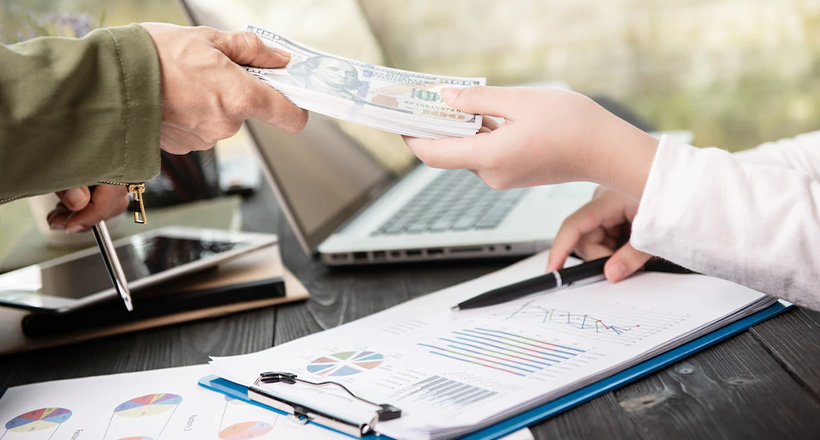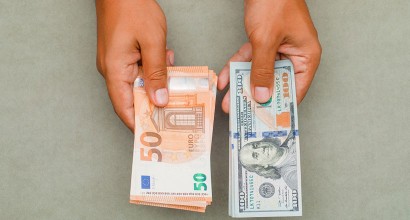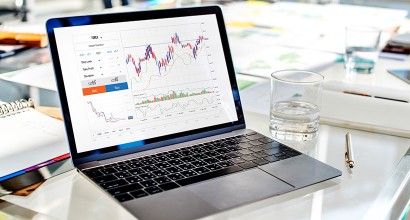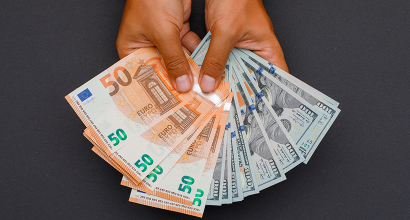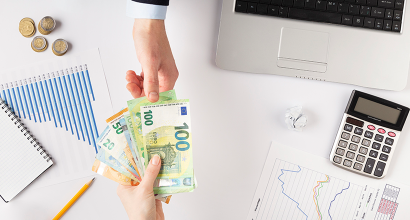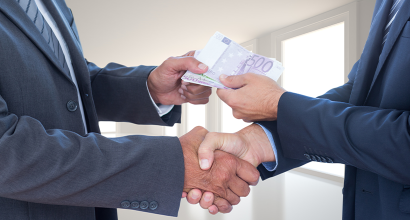The Basics of Money Exchange: How it Works and How you can Make Informed Decisions
Money exchange, also known as currency exchange, is a process that allows you to convert one currency into another. Whether you’re planning an international trip, sending money to loved ones abroad, or conducting business in foreign markets, understanding how money exchange works can save you both time and money. This guide will break down the basics of currency exchange and offer tips on how to make informed decisions when exchanging money.
What is Money Exchange?
Money exchange involves converting the value of one currency into another. For example, if you have U.S. dollars (USD) and want to convert them into Euros (EUR), you would need to exchange your dollars for euros based on the current exchange rate. The rate determines how much of the foreign currency you’ll receive in exchange for your own.
How Currency Exchange Rates Work
Currency exchange rates fluctuate constantly due to various factors such as supply and demand, economic conditions, and geopolitical events. These rates are typically quoted as a pair, showing how much of one currency can be exchanged for another. For example, if the USD/EUR exchange rate is 1.10, it means that $1.10 USD is equivalent to €1.00 EUR.
1. Market Demand and Supply
The most significant factor affecting exchange rates is the demand and supply for a particular currency. If a currency is in high demand, its value will rise compared to other currencies. Conversely, if there is less demand, its value will decrease. For instance, if many people want to buy USD, the demand increases, and the value of the dollar goes up.
2. Economic Indicators
Economic indicators such as interest rates, inflation, and GDP growth also influence exchange rates. A strong economy usually attracts foreign investors, increasing demand for that country’s currency. Conversely, if a country’s economy is struggling, its currency may depreciate.
3. Political and Social Stability
Countries with stable governments and low levels of social unrest typically have stronger currencies. Political instability, on the other hand, can lead to a loss of investor confidence, causing a currency to lose value.
Where Can You Exchange Money?
You can exchange money in various places, each offering different rates and fees. It’s essential to understand the options available so you can choose the best one for your needs.
1. Banks
Banks are a common place to exchange currency. They generally offer reliable services and are widely available. However, banks may charge higher fees and offer less favorable exchange rates compared to specialized currency exchange services.
2. Currency Exchange Bureaus
These specialized services often offer better rates than banks and are available in airports, tourist areas, and cities. However, the convenience of airport exchange bureaus usually comes at a cost, with higher fees and less favorable rates.
3. Online Platforms
Online currency exchange platforms, like Noblefastpay, provide a convenient way to exchange money at competitive rates. These platforms often offer lower fees and allow you to lock in rates, making them a preferred choice for many people.
4. ATMs
Using ATMs abroad is another option for accessing foreign currency. While convenient, you should be aware of potential foreign transaction fees and less favorable exchange rates imposed by your bank or the ATM provider.
How to Make Informed Decisions When Exchanging Money
To get the most out of your money exchange, it’s crucial to make informed decisions. Here are some tips to help you do just that:
1. Compare Rates and Fees
Different providers offer different exchange rates and fees. Before exchanging your money, compare the rates offered by banks, currency exchange bureaus, and online platforms. Even a small difference in rates can significantly impact the amount of foreign currency you receive.
2. Understand the Mid-Market Rate
The mid-market rate is the midpoint between the buy and sell rates in the global currency market. It’s the fairest exchange rate you can get, but it’s not always what you’ll be offered by banks or exchange services. Knowing the mid-market rate can help you determine whether the rate you’re being offered is competitive.
3. Avoid Last-Minute Exchanges
Exchanging money at the last minute, such as at an airport, often results in higher fees and less favorable rates. Plan ahead and exchange your money before you travel or need it. This gives you time to shop around for the best rates.
4. Watch for Hidden Fees
Some currency exchange services may advertise low rates but charge hidden fees or commissions. Always ask about any additional costs involved in the transaction. Transparent providers, like Noblefastpay, will clearly state their fees and charges upfront.
5. Use a Credit or Debit Card Abroad
In some cases, using your credit or debit card abroad can be more cost-effective than exchanging cash. However, check with your bank about foreign transaction fees and currency conversion rates before you travel. Some cards offer no foreign transaction fees, which can save you money.
6. Consider Forward Contracts
If you know you’ll need a specific amount of foreign currency in the future, consider a forward contract. This allows you to lock in an exchange rate for a future date, protecting you from unfavorable rate fluctuations. Forward contracts are especially useful for businesses and individuals with large, planned transactions.
7. Stay Informed
Currency exchange rates can fluctuate rapidly due to economic and political events. Stay informed about global news that could impact exchange rates, especially if you’re planning a significant transaction. Tools like rate alerts or market analysis from platforms like Noblefastpay can help you keep track of changes.
8. Consider Currency Hedging
Currency hedging is a strategy used to protect against the risk of unfavorable exchange rate movements. This is particularly useful for businesses that operate internationally. By using hedging instruments like options and futures contracts, you can minimize potential losses due to currency fluctuations.
Common Mistakes to Avoid When Exchanging Money
Even seasoned travelers and international business owners can make mistakes when exchanging money. Here are some common pitfalls to avoid:
1. Exchanging All Your Money at Once
It might be tempting to exchange all your money at once, especially if you find a good rate. However, exchange rates can fluctuate, and it might be beneficial to exchange smaller amounts over time to take advantage of better rates.
2. Not Keeping Track of Exchange Rates
Failing to monitor exchange rates can lead to missed opportunities. If you regularly send money abroad or travel frequently, keep an eye on the rates and exchange your money when the rate is in your favor.
3. Ignoring Small Differences in Rates
Small differences in exchange rates might not seem significant, but they can add up, especially when dealing with large sums of money. Always compare rates to ensure you’re getting the best deal.
4. Not Being Aware of Dynamic Currency Conversion
Some merchants and ATMs abroad offer dynamic currency conversion, which allows you to pay in your home currency rather than the local one. While this might seem convenient, it usually comes with higher fees and a poor exchange rate. Always choose to pay in the local currency.
Conclusion
Understanding the basics of money exchange and how it works is essential for anyone dealing with foreign currencies, whether you’re a traveler, a business owner, or someone sending money abroad. By staying informed, comparing rates, and avoiding common pitfalls, you can make smart, informed decisions that maximize the value of your money. Platforms like Noblefastpay offer tools and services that simplify the exchange process, helping you navigate the complexities of currency exchange with ease and confidence.
